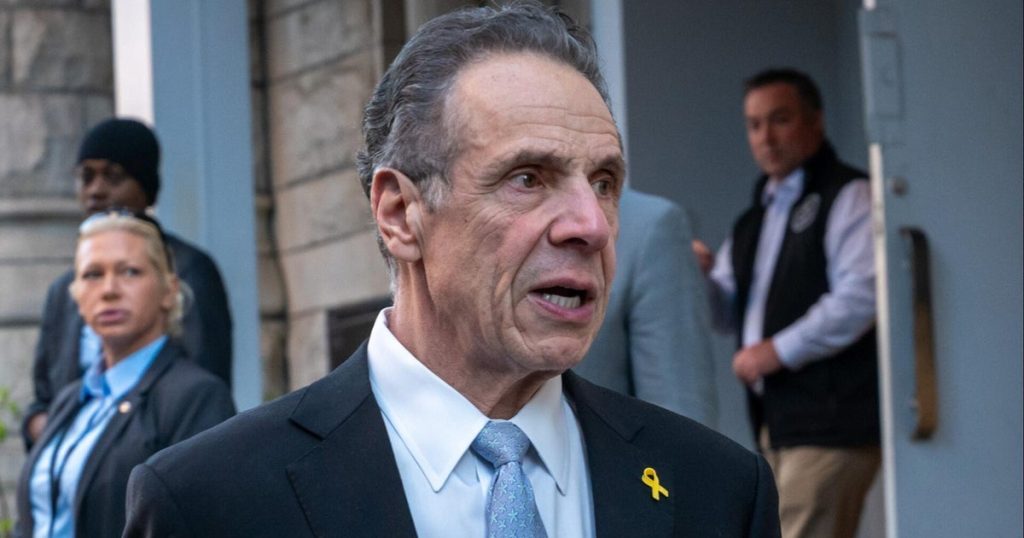The Justice Department has initiated an investigation into former New York Governor Andrew Cuomo regarding his congressional testimony during the COVID-19 pandemic. This comes on the heels of months of scrutiny from congressional Republicans who have accused Cuomo of providing false statements related to nursing home deaths. Cuomo, who is currently running for mayor of New York City, has not been formally contacted by law enforcement about the investigation, which adds another layer of complexity to the political landscape ahead of the upcoming elections.
| Article Subheadings |
|---|
| 1) Overview of the Investigation |
| 2) Context Behind the Allegations |
| 3) Reactions from Cuomo’s Team |
| 4) Impact on the Political Landscape |
| 5) Conclusion and Future Implications |
Overview of the Investigation
The Justice Department is focusing its investigation on Andrew Cuomo‘s statements made during congressional hearings relating to the COVID-19 crisis. Specifically, the inquiry centers on claims made during his testimony regarding the number of coronavirus deaths in nursing homes, an issue that has been politically contentious since the onset of the pandemic. Investigators are seeking to determine whether Cuomo deliberately misled Congress, which could result in serious legal repercussions. The opening of the investigation arrives at a crucial time, with Cuomo vying for a leadership position in New York City as the upcoming mayoral election approaches.
Context Behind the Allegations
The investigation is framed within a broader context of political conflict. Congressional Republicans had been demanding a probe into Cuomo for months, alleging that he had fabricated information related to COVID-19 deaths in nursing homes. This claim has been a focal point for Cuomo’s critics, who believe he mishandled the pandemic response. During testimonies, Cuomo reportedly stated he was not involved in drafting a state report that contradicted claims he previously made. This contradiction has led to concerns over potential violations of law prohibiting false statements to Congress, which is taken very seriously in the political arena.
Reactions from Cuomo’s Team
In response to the investigation, Cuomo’s spokesperson, Rich Azzopardi, has expressed disbelief over the allegations and claims that the former governor has been uninformed about any ongoing inquiries or subpoenas. Azzopardi stated,
“We have never been informed of any such matter, so why would someone leak it now?”
He labeled the situation “lawfare and election interference,” also suggesting it was politically motivated, especially in a year rife with elections. In light of accusations that officials have prioritized political ambitions over real issues, Azzopardi emphasized that Cuomo testified truthfully and cooperatively.
Impact on the Political Landscape
The initiation of this inquiry has significant implications for the political dynamics in New York City. With Cuomo running against current New York City Mayor Eric Adams, the timing raises questions about the motivations behind the investigation and its potential to influence the election. Officials previously faced criticism when the Department of Justice (DOJ) controversially dropped charges against Adams. Many commentators speculate that this investigation may be a strategic maneuver not only to undermine Cuomo’s legitimacy but also to shape the narrative leading up to the elections. Previous similar legal proceedings have also drawn attention to perceived inconsistencies in the DOJ’s approach to politicians from different parties.
Conclusion and Future Implications
As the investigation unfolds, the ramifications extend beyond the immediate allegations against Cuomo. Political analysts are closely observing how this situation could affect public opinion as voters decide who will lead New York City. Given the strong partisan divides, the outcome of this inquiry may reverberate throughout upcoming elections, influencing strategies employed by candidates. The potential for charges against Cuomo could reshape the framework of political dialogue and engender a more scrutinized environment for public officials. It becomes increasingly imperative to consider how legal matters may intertwine with political strategy as these events develop.
| No. | Key Points |
|---|---|
| 1 | The Justice Department has opened an investigation into Andrew Cuomo’s testimony to Congress regarding nursing home deaths during the COVID-19 pandemic. |
| 2 | Cuomo’s team has denied any allegations of wrongdoing and claims the investigation is politically motivated. |
| 3 | The timing of the inquiry raises significant questions about its implications for the New York City mayoral race. |
| 4 | Republicans have persistently called for the investigation, accusing Cuomo of lying under oath. |
| 5 | The investigation showcases the tense relationship between legal proceedings and political maneuvering in the lead-up to elections. |
Summary
The investigation into former Governor Andrew Cuomo reflects an ongoing struggle at the intersection of politics and law enforcement. Accusations of misleading Congress during a health crisis come under rigorous scrutiny as New Yorkers prepare to head to the polls. The implications of this inquiry could be extensive, potentially affecting candidates’ strategies, the political narrative, and public perception as the mayoral race heats up. How this situation develops will provide significant lessons on accountability and the politicization of legal actions.
Frequently Asked Questions
Question: What specific lies is Cuomo being accused of?
Cuomo is accused of providing false statements to Congress concerning the number of COVID-19-related deaths in nursing homes, particularly in reports that he allegedly helped draft and edit.
Question: How could this investigation affect the upcoming mayoral election?
The investigation may cast doubt on Cuomo’s credibility and fitness for office, which can influence voter perceptions and strategies employed by rival candidates, especially with his running against current Mayor Eric Adams.
Question: What are the broader implications of this investigation for political figures?
This case illuminates the delicate balance between legal accountability and political maneuvering. It can serve as a precedent for how future investigations into public figures are perceived and managed within the context of election cycles.


